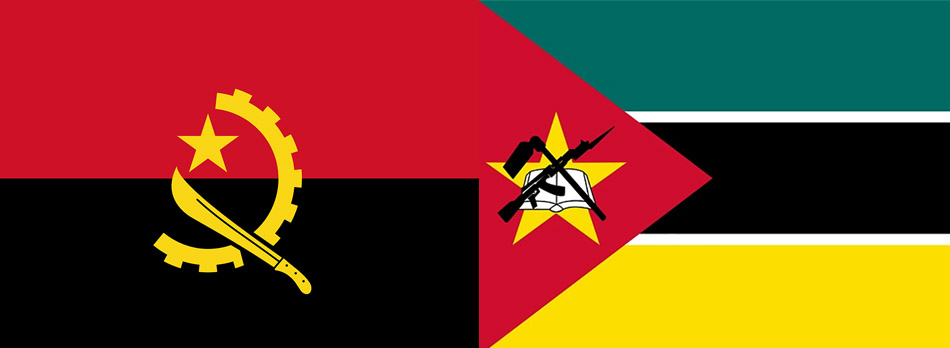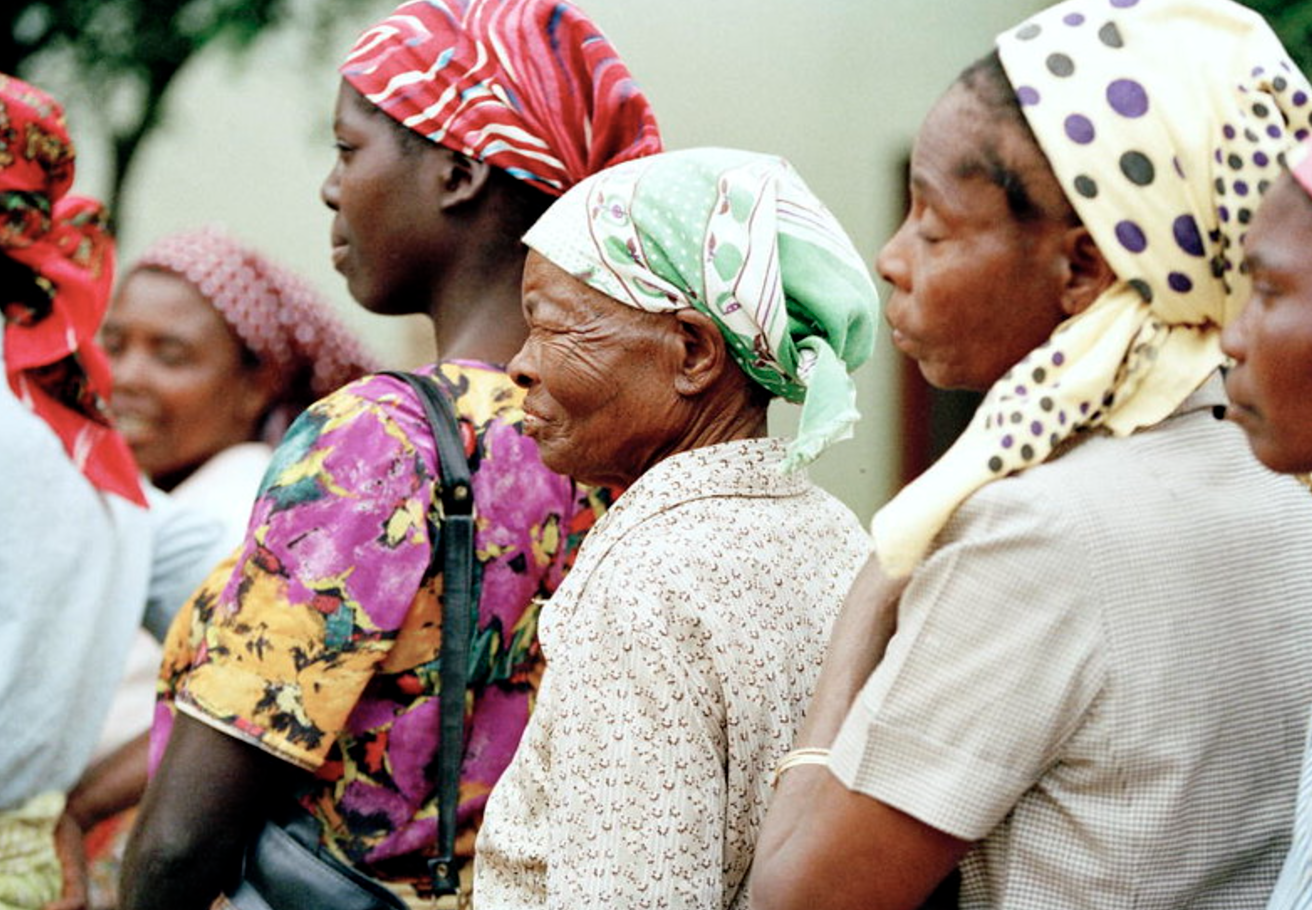News
Angola and Mozambique – Where the West Fails to Play to its Greatest Strength
As he weighs in on Mozambique’s election, Angola’s President João Lourenço, promoted to regional statesman by the doddering Joe Biden, is digging into the contemporary Western playbook for dealing with countries that flout democratic practices.

Research Director, The Brenthurst Foundation

Director, The Brenthurst Foundation

Fresh from his meeting with US President Joe Biden (yes, he remains in office until January), Angola’s President João Lourenço was enjoying his new status as global statesman, pronouncing himself on conflicts from Ukraine to Israel at his party’s congress.
Perhaps it was the promise of billions in infrastructure investment (every cent of which will, of course, be accounted for) for the “Lobito Corridor”, a US initiative to compete effectively with China to extract “critical minerals” from the southern Democratic Republic of Congo via rail.
Perhaps it was the fact that the Angolan government, in power thanks to a rigged election, according to independent observers and, sotto voce, Luanda’s leading diplomats, has found itself in the unlikely position of being singled out by the US as the continent’s great hope.
Biden’s visit – his only visit to Africa – comes after a visit by US Secretary of Defence Lloyd Austin in September 2023, also the first of its kind.
Emboldened by this flirtation, and without a smidgen of irony, Lourenço turned to the situation in Mozambique and called on the Mozambican government, political parties and civil society to “work to find the best solutions to overcome the post-election crisis”.
Like Angola’s, Mozambique’s election seemed weak on the finer points of freeness and fairness, and the result – an astonishing 70,67% victory for Frelimo – is so far out of whack with voting station counts that it has been dismissed by all sober observers.
According to the EU Election Observation Mission, there were “irregularities during counting and unjustified alteration of results at polling station and district level”.
All of this jabbering about “irregularities” and the “alteration of results” has not stopped Frelimo’s fellow liberation movements from rapidly pronouncing their comrade, Daniel Chapo, the winner and agreed that the opposition candidate, Venâncio Mondlane, only received 20,32% of the vote.
Perhaps wishing he could have done the same at home where his ANC was denuded of its majority, President Cyril Ramaphosa was quick to pronounce Frelimo the victors – quicker even than Mozambique’s less-than-reliable Constitutional Council which is yet to validate and proclaim the result.
Since the announcement by the electoral commission of the fake result, Mozambique has been in turmoil, with the opposition taking to the streets in a series of inventive protests that have included traffic standstills, marches and strikes.
The government, at birth bereft of capacity and now, after 50 years in power, a model of looting and state decline, is now so weak that it has to rely on external forces such as Rwanda’s military-for-hire to try to impose order.
Rwanda has denied it is playing this role, claiming that it is focused on its mission to bring order to the north where French gas interests have been under assault by terror groups. But videos circulating on WhatsApp show Mozambicans confronting troops in camouflage strikingly similar to that of Rwanda and asking them why they do not speak local languages. Rwanda, in case you missed it, is where Paul Kagame won 99.18% of the vote in a 98.2% turnout in this year’s election, smashing his previous 2017 record of 98.63%.
Lourenço, promoted to regional statesman by the doddering Biden, is digging into the contemporary Western playbook for dealing with countries that flout democratic practices. In the old days when there were principles, democracies would not hesitate to condemn election rigging and would not recognise its beneficiaries.
These days, established democracies are more supple and less principled. They are quite happy to support the beneficiaries of rigged elections if their elites can extract minerals, for example, or favour them over their strategic rivals such as China. Of course, they can’t actually say that, so they speak instead of the need for “stability”, “security” and the like. The undermining of democratic outcomes is often accompanied by a rationale that the opposition is not capable of governing and is “even worse” than the incumbents. For one, that is not the choice of outsiders, by the way, and in the case of most African governments and especially in Mozambique, the extant levels of governance do not exactly pose a hard act for oppositions to follow.
Still, they would like now to enthusiastically apply this model to Mozambique, getting the riggers and the robbed from the last election around a table where they can all agree that power should remain in the hands of Frelimo, perhaps with a government of national unity fig leaf where Mondlane gets a Land Cruiser VX and an office across the passage from Chapo.

The real answer, the hard answer, is never put on the table because this might lead to an inconvenient result, undoing years of buttering up an illegitimate regime which is world class only at serially failing its people.
That answer is simple: the election was a disaster of incompetence and rigging. Fresh elections with proper independent supervision need to be held to produce a legitimate outcome. This ought to be the focus of the international community.
But as the elderly democracies of the world, enfeebled by their own internal problems, no longer have the stamina for projecting democracy, this outcome is unlikely to even be discussed. A deal will be made in the interests of “stability and security” and military and other support will be lent to Mozambique to keep the people at bay.
This is, of course, a duplicitous and weak strategy. Duplicitous because they would never apply these principles at home where the freeness and fairness of elections are sacrosanct, lending itself to suggestions of a democratic double-standard for Africans, or worse. Weak because they will, ironically, result in greater “instability and insecurity” as illegitimate regimes kept in power under false pretences implement repressive strategies while continuing to loot.
The result will, ultimately, be the entrenchment of the view that the democratic West does not care about ordinary Africans and is engaged in obscene acts of enrichment with the elites that make their lives a misery. Remarkably the West in the process fails to play its one card that differentiates it from China, Russia and others more interested in government-to-government relations than in putting people first: democracy.
And then the West wonders why it loses ground in Africa and, despite years of aid, the continent’s development crawls along. Perhaps the most extraordinary thing is that it should be puzzled at all.
This article originally appeared on the Daily Maverick

